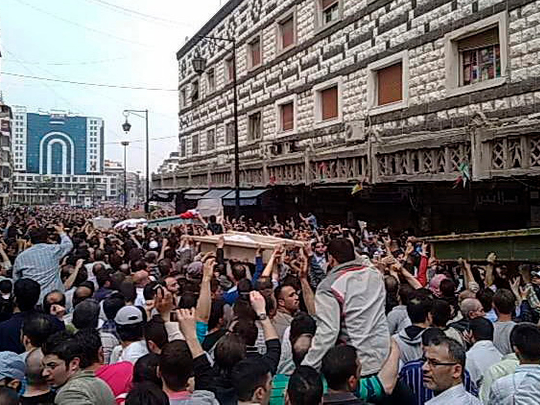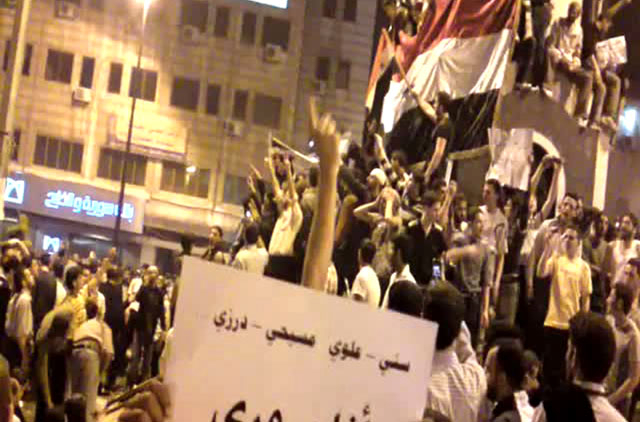
Dubai: Syria's government on Tuesday approved the lifting of a nearly 48-year-old emergency law, thereby meeting a key demand of pro-reform protesters, but opposition leaders dismissed the move as eyewash by President Bashar Al Assad.
The opposition's response suggests that the month-old protests could be entering a more volatile stage: protesters seeking Al Assad's ouster as his regime warns that demonstrations must end.
In focus: Unrest in the Middle East
"This is a manoeuvre to gain time," prominent Syrian writer Yassin Haj Saleh, who spent 16 years in jail for being a member of a pro-democracy group, was quoted as saying.
"They are basically telling the people, we have fulfilled your demands, so go home and if you don't we'll break your head," he told The Associated Press by telephone from Beirut. "But in reality nothing will change."
A bill regulating demonstrations was also approved by the Syrian Cabinet, the official news agency Sana reported, only hours after the interior minister imposed a ban on political gatherings and after security forces fired on protesters in the city of Homs, killing four.
The laws will now go before parliament, which is not due to meet before May 2.
Soon after the annnouncements, a pro-democracy demonstration erupted in the restive city of Baniyas, rights campaigners were quoted as saying. "Not Salafist, not Muslim Brotherhood. We are freedom seekers," hundreds of people chanted.
The chants were a reference to accusations by the authorities that armed Islamist groups were operating out of Baniyas and "spreading terror" in Syria.
Interior Minister Mohammad Ebrahim Al Shaar earlier told Syrians "to refrain from taking part in all marches, demonstrations or sit-ins under any banner whatsoever."
Warning
He warned that if demonstrations were held, "the laws in force in Syria will be applied in the interest of the safety of the people and the stability of the country."
There was no immediate response from protest leaders, who have previously said the lifting of the state of emergency would not go far enough and have demanded an end to the Baath party's stranglehold on Syrian politics.
Repeal of the emergency law has been a central demand of reformists since protests began on March 15.
At least 200 people have been killed by security forces or plain-clothes police since the start of the protest movement, according to Amnesty International.
Fact file
- The Syrian cabinet approves a bill to rescind a decades-old emergency law.
- The cabinet agrees to abolish the state security court and approves a new law allowing peaceful protests.
- The cabinet approves a bill requiring protesters to get permission from the Interior Ministry before holding demonstrations.
- Most of Syria's 23 million people were born or grew up under the strict control of the state of emergency that, among other things, puts strict control on the media, allows eavesdropping on telecom and permits arrests without warrants from judicial authorities.
- The changes need parliament approval, but no objections are expected at its next session planned for May 2.













